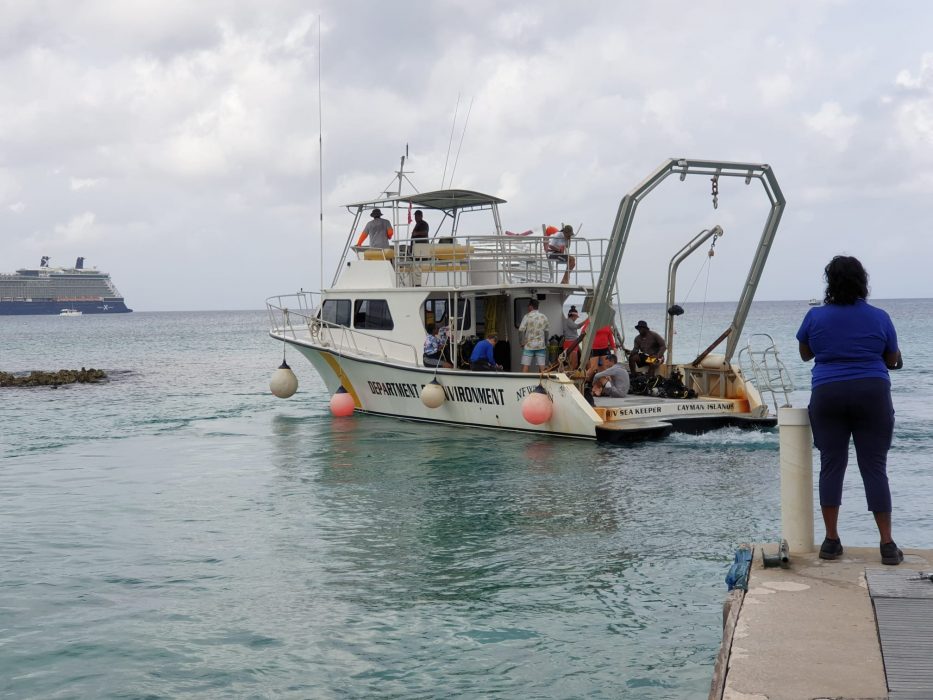Montserrat is participating in a regional workshop on managing coral reefs and responding to Stony Coral Tissue loss Disease (SCTLD) happening in the Cayman Islands this week.
Alwyn Ponteen of the Fisheries Unit, Emmy Aston and Andrew Meyers of Scuba Montserrat are meeting with other members of the Coral Conservation in the Overseas Territories (C-COT) working group to share their experiences and to learn about managing this emerging disease.

The Cayman Islands Government is hosting the workshop which is being led by the Joint Nature Conservation Committee and funded by the United Kingdom’s Darwin Plus scheme.
This Darwin Plus project is a partnership between the governments of the British Virgin Islands, Cayman Islands, and the Turks and Caicos Islands, alongside Kalli de Meyer (C-COT chairperson and director at Nature2) and Dr Greta Aeby (coral disease expert at the University of Hawai’i at Manoa). Recognising the broad scale of threats to coral reef ecosystems, the project shares knowledge and resources across the Overseas Territories, including Anguilla, Bermuda, and Montserrat through C-COT.
The C-COT working group on Wednesday conducted field work to practice the theories presented by Dr Greta Aeby on Stony Coral Tissue Loss Disease monitoring.
According to the JNCC website, “the highly contagious stony coral tissue loss disease (SCTLD)… is having a devastating effect on infected coral reefs.”
First reported in Florida in 2014, SCTLD has now spread to the Caribbean region and is decimating infected reefs. Montserrat has confirmed that it has found evidence of the disease affecting corals in our waters.
In 2021, C-COT was formally established by the Collaborative approach to managing coral disease in UK Overseas Territories project, which will fund the working group until March 2024. The project fosters partnership between governments, NGOs, academic institutions, and wider stakeholders to coordinate effective coral reef management decisions through the Coral Conservation in the Overseas Territories (C-COT) working group, which the project funds. The C-COT working group was formerly known as the Collaborative Coral Reef Working Group (CCRWG) until March 2022.

“Coral reefs are highly valuable ecosystems that contribute to the economy, livelihoods, and cultural identity of the societies that live near to them. Across the Overseas Territories coral reefs are relied upon for their role in supporting tourism and fishing industries and for providing protection against tropical storms.
“Coral reef cover in the Caribbean region has declined severely over the last three decades leaving these fragile ecosystems highly vulnerable to environmental change and additional pressures. The emergence of SCTLD, with its rapid rate of spread, high mortality rate, and large number of affected species, therefore, poses an urgent threat to coral reef ecosystems and the services they provide,” the JNCC website stated.
Source: https://jncc.gov.uk/our-work/collaborative-approach-to-managing-coral-disease-in-ukots


